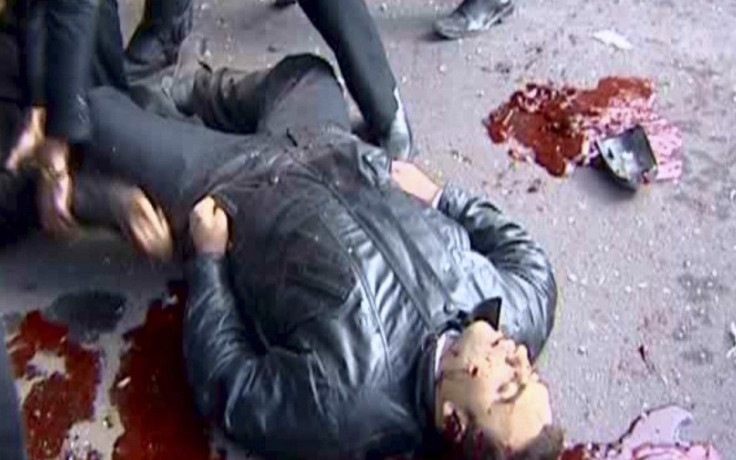Suicide Bomber Kills 25 in Syria Bombing, Second in Two Weeks

A suicide bomber in the Syrian capital is responsible for an explosion that tore through a busy intersection, hitting a police bus and killing 25 people, and injuring dozens more in the second Damascus attack in two weeks, Syrian authorities said Friday.
Syrian state media said the powerful explosion struck in the historic Midan quarter in the heart of the capital, a neighborhood that has become restive as the bombings mark an escalation of bloodshed while Arab League monitors tour the country to investigate President Bashar al-Assad's crackdown on a 10-month uprising, The Associated Press reported.
State television showed people carrying human remains, pools of blood in the streets, and the wreckage of the police bus and other vehicles. Reporting from the scene, CBS News' George Baghdadi said the state-owned bus was completely destroyed. Syrian television put the number of wounded at 46.
Interior Minister Mohammed Shaar blamed a suicide bomber for the attack.
He detonated himself with the aim of killing the largest number of people, Shaar said.
The attack follows, two weeks to the day, the other bombing in Damascus, which killed 44 people. In the conflict-riddled capital, suspicions of the culprit's intentions abound. The state news media blamed terrorists for the attack, and a spokesman for an insurgent group suggested that the government carried out the attack to sully the opposition's image, the New York Times reported.
We're expecting more of these bombing in the coming days, said Col. Ammar al-Wawi, a Syrian defector who works with an insurgent group called the Free Syrian Army. This regime is seeking to spread chaos in Syria.
The Arab League is set to meet Sunday in Egypt to assess the observers' initial findings in Syria and to decide whether to continue. The first 50 observers arrived in the country on Dec. 26.
The monitors are tasked with ensuring that Syrian authorities comply with the deal it signed with the Arab League, which entails the withdrawal of troops, the release of political prisoners and negotiations with the opposition in order to bring an end to the 10-month-long crackdown on the uprising against al-Assad.
On Sunday, a pan-Arab body called for the immediate withdrawal of the Arab League monitors, as violence persists and gunfire continues to threaten civilian lives. The recommendation of the 88-member Arab Parliament, which is comprised of MP's from each of the League's 22 member nations, is non-binding. The group said that Arab are angered by the Syrian government's endless killings, even with at least 100 monitors now in the country.
© Copyright IBTimes 2024. All rights reserved.





















